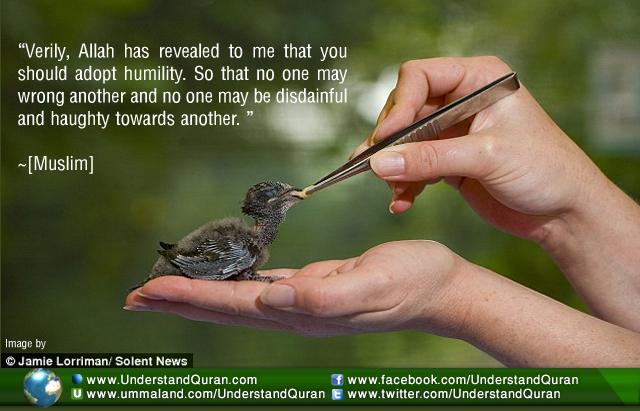2 Big Errors We Make When Talking About Homosexuality in Dawah

by Raiiq Ridwan
Questions about homosexuality are among the many challenges that modern day Muslims face. The Quran is pretty clear in its condemnation of any homosexual activity, and throughout Islamic history there has been little debate as to the fact that homosexual behaviour is a major sin. But let’s look a little more closely at a couple of mistakes that Muslims commonly make in exploring this issue.
1. We assume that homosexual urges are sins in themselves.
Look deeply into the last sentence— homosexual behaviour is a major sin. One of the biggest errors that we Muslims have made today is in failing to understand what exactly is haram. Hearing whispers from Satan that provoke desires for the same sex is not of itself a sin. It is only when someone listens, reflects, and acts upon those Satanic whispers that sin is committed.
It is only when someone acts upon those urges and commit any sexual act with a same-sex partner that it becomes haram. Much like how desires for the opposite sex might get aroused in a Muslim, but until he does a haram act with the non-mahram, he or she is not sinful.
Our Prophet peace be upon him has said that this ummah have been forgiven for their thoughts. In fact in one hadith, he said that if someone has the intention to do a bad deed and later stops himself from doing it, then he has actually earned a reward with Allah.
Allah decreed good deeds and bad deeds, then He explained that whoever thinks of doing a good deed then does not do it, Allah will write it down as one complete good deed. [Al-Bukhaari (6491) and Muslim (131) narrated from Ibn ‘Abbaa]
2. We assume that it matters whether or not people are “born gay.”
Another aspect that Muslims need to talk about is the issue of people being “born” gay i.e. homosexual orientation having a genetic basis.
Almost every few months now, there’s this new finding in endocrinology, behavioral genetics, psychology etc. that either prove or disprove the genetic basis of homosexuality. It’s a rather hot topic, judging by how much time and effort people spend talking about it and by how much research is going into it. The pendulum of evidence seems to sway both ways from time to time.
Here’s the important bit: It’s irrelevant.
If the LGBTQ (Lesbian, Gay, Bisexual, Transexual, and Queer) group claim that homosexuality is natural or moral because it’s in the genes, then we need to understand that this is a false argument.
Just because something is “genetic” doesn’t make it ethical, moral or even good! Diabetes for example, is in the genes. Do we say we don’t treat it? So is cancer. Studies have also found that violence, unfaithfulness in marriage, paedophilia, and many other negative human behavioural traits are passed down through genes.
Just because it’s in the genes does nothing to prove that a certain act is moral or not. Biology, and science for that matter, is generally amoral. Pro-LGBTQ Harvard biologist Richard Lewontin commented on the suggestion that homosexuality being genetic is proof that it’s moral:
“What difference does it make to me which genes affect sexual orientation? None whatsoever. That’s what I say to my gay friends, that’s what they say to me. You get this right-wing guy who thinks a particular sexual orientation is bad, but now that he knows it’s genetic, he thinks it’s okay.
“So he’s reached the right conclusion. Good for him. But it’s stupid! He must be one of the very few people in the world who’s become convinced that something is not a defect for the reason that it’s biological. The response to that is so simple it’s mind-boggling: cancer is biological. Does that make cancer good? There are a million biological defects. It’s not even logical.”
For many Muslims, proving that homosexuality isn’t genetic immediately establishes that the orientation, not the action, is a choice. However, the aetiology of the orientation has absolutely nothing to do with something being a choice.
Let’s consider the case of person A who claims to have a homosexual orientation. Through thorough psychiatric and genetic analyses, we come to know that he has no “gay gene” but rather his orientation is caused by some childhood trauma, self-identification with girls, or any other sort of environmental predisposing factor or factors. Does that fact at all entail the fact that his orientation is a choice?
Regardless of how he came to have this orientation, the truth of the matter is that he feels to his bones that he has it now, and try as he might he cannot just look up and start finding girls attractive all of a sudden. That’s the definition of the something not being a choice.
In Islam, life is a test. And, we disagree with the ultimate freedom that society today seeks to promote. We are not “absolutely” free. We are free to do whatever we want as long as it is within the boundaries of Allah.
The Reward for Resisting Homosexual Temptation
Let’s say you have a severely naughty child. One day, the school geneticist (we might have them in the future) analyzes his DNA and finds out that he has a gene which predisposes him to being naughty. The sensible parent would do the following things:
- Don’t condone the rowdiness just because his biology predisposes him towards it.
- Take special care of the child since he would have a tougher time being a “good lad” than would his friends.
- Try giving more time to teach the child that what he is doing is wrong and that you appreciate that it is hard for him, but that he has to control himself for his own good!
Similarly, the biggest test for homosexuals is their urges. If they can control these urges, they may as well earn great reward for their patience. Many haram activities are there which we would like to do. We are asked to hold back out of the consciousness of Allah. This falls into that category too.
It’s time to give careful thought to the beliefs and opinions that govern our actions. The good of the ummah demands it.









